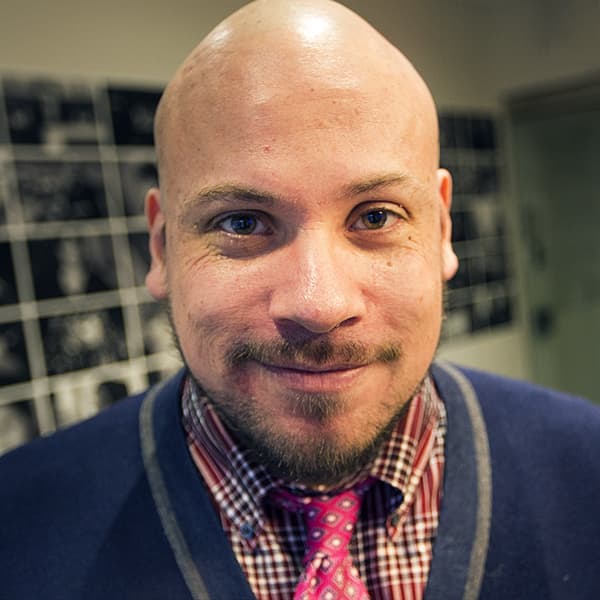Advertisement
A 'Secret Society' Blooms Underground, To The Music Of Club d'Elf
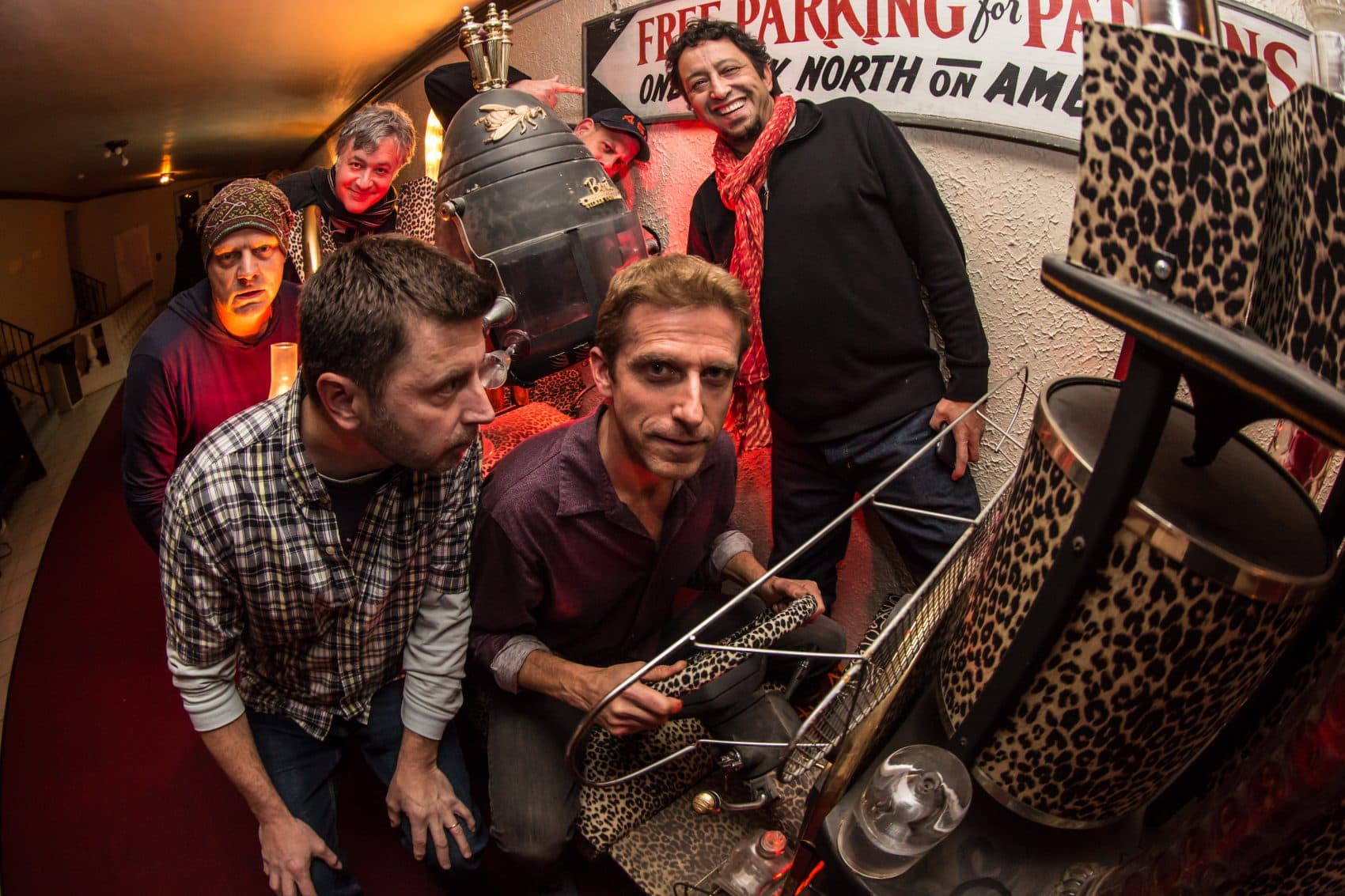
“I’m from Missisippi,” the guy seated next to me yelled ecstatically into my ear. “I’ve never been somewhere like this!”
The place was the tiny Lizard Lounge. The occasion was a typical show by Club d’Elf. It’s telling that this new fan referred to the whole experience as a place he was discovering, rather than just a band he was hearing.
There’s something about the whole affair, starting with the group’s name, that makes you feel a bit like you got your name on the guest list at a mysterious gathering spot that only exists at a certain time and place — and might vanish in the light of day.
The Lizard Lounge is a low-ceilinged, red-draped performance space in the basement of Cambridge Common, a busy pub on Massachusetts Avenue between Harvard and Porter squares. It also hosts other shows and a long-running weekly poetry night.
It's dimly lit. Frayed Oriental rugs and two large mirrors are the chief decorations. There's no stage, and tables frame the band on three sides. Club d'Elf has maintained a low-profile residency here — one or two shows a month, generally — for 20 years.
Talking about Club d’Elf, leader Mike Rivard uses the term “secret society” a few times. He's referring to a few things: the shows themselves; membership in the band, which is a somewhat loose concept; and the rhythmic heart of much of its music, based in North African folk styles, which new players need to learn through initiation.
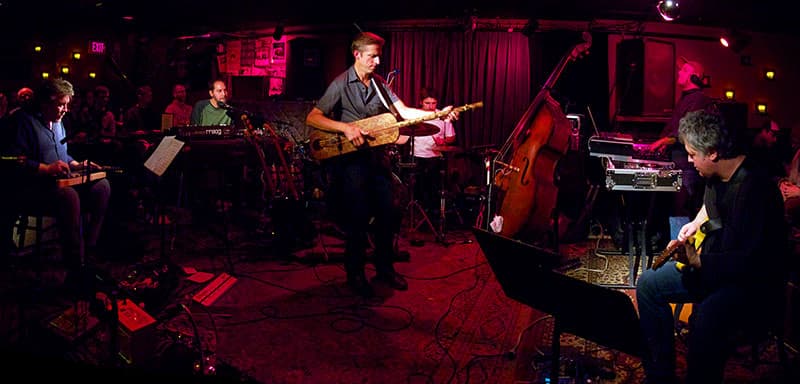
The group makes a sound that's simultaneously far out and deeply rooted. It's a postmodern cauldron of various forms of jazz plus funk, electronica and the snarling, rhythm-based music Miles Davis played in the early 1970s — with the distinctive chaabi beat of North African folk music at its core.
So on a given gig, Rivard may dig into a bassline on sintir — a three-stringed instrument covered in goat hide, used in the ritual music of the Moroccan Gnawa people — inches from the record-scratching of regular deejay Mister Rourke and the Moog synthesizer from which Paul Schultheis coaxes futuristic sounds.
Club d’Elf is an ensemble with rotating membership, its players culled from an ever-expanding network of musicians dating back to Rivard’s time at Berklee College of Music.
“The idea was that I wanted to have all the musicians I liked playing with and looked up to, and there wasn’t any feasible way to have them be part of an ongoing band,” Rivard says.
Advertisement
So he assembles a different combination of players for each performance, from among a stable of members. The core is Rivard — on acoustic and electric basses and the sintir — and drummer Dean Johnston. (Erik Kerr was the regular drummer for the first eight years, before moving away from the area.)
To sit in with Club d’Elf, you have to be able to play the chaabi beat — a rhythm that can pose a puzzle to Western musicians. The first trick is figuring out where the “one,” or the first beat in a measure, falls. It tends to take not only practice but also a musical orientation from someone in the know.
Backstage before a January show at the Lizard Lounge, Rivard and Johnston broke it down for us:
The ancestors of today's Gnawa people were enslaved and brought to North Africa, where their progeny have held on to much of the group's traditional culture. Rivard learned about its namesake musical style from Brahim Fribgane, a Moroccan immigrant and sometime member of Gnawa great Hassan Hakmoun’s band. Fribgane lived in Greater Boston in d’Elf’s earliest years and now is occasionally a much-anticipated guest. He plays various forms of percussion and the oud, a kind of Middle Eastern lute.
“We would listen to all these cassettes he had given me from Morocco, and I would count where I thought the ‘one’ was, and he would shake his head and tell me where it really was. I went through this long process of just training myself to hear the music correctly,” Rivard says. Over the years Rivard has put the d’Elf spin on pure Gnawa songs and also built original compositions around its rhythmic figures.
“That rhythm is part of the DNA of our music at this point. If you listen to the band or you see us on any particular night,” Rivard says, “you’ll hear us go into that rhythm over and over. I describe it as the Bo Diddley beat of Morocco.”
New members of the Club need to learn this style.
Some d'Elf players are frequent members; others rotate in once in a while as featured guests. They include players from what was once known as the forward-thinking Downtown scene in New York (Marc Ribot, Mat Maneri); some with long track records working with other artists, like Alain Mallet (Paul Simon), Ed Mann (Frank Zappa) and David Bowie alumni Reeves Gabrels and Gerry "Spooky Ghost" Leonard; and the occasional luminary from the world of Gnawa music, most notably Hakmoun himself.
A typical performance features Rivard standing amid a circle of musicians as he orchestrates the general flow of things, sometimes using hand signals to cue players in or out of a particular improvisation.
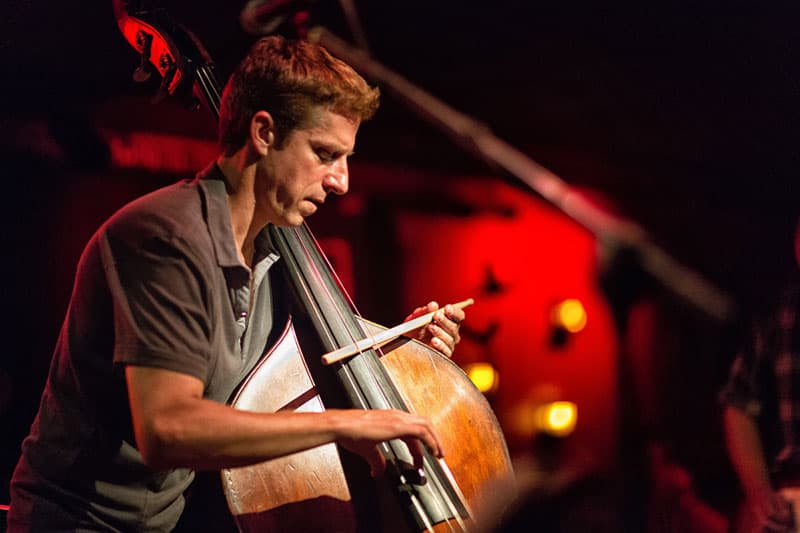
“There are tunes,” Mister Rourke says, “but we all navigate within the tunes improvising in a free-form fashion like no other group I’ve ever been in. There’s A sections, B sections, hooks and that sort of thing, and through some sort of telepathy we know when to hit those. But we’re never playing the same arrangement.”
The structure of this project allows for great variety from show to show. When you scan the band’s show calendar, you’re looking not just for dates and times but also to see who's playing that night.
But it also makes it hard for the group to tour. Not only do the musicians have other commitments, but the band’s identity is too fluid for the comfort of many promoters, Rivard says. Club d’Elf has maintained a steady following over the years, and special shows, like the 20th anniversary one on Friday, Feb. 9, often sell out in advance, but the group only occasionally ventures to larger venues. (Though the anniversary show is sold out, d’Elf plays The Falcon in Marlboro, New York, on Feb. 16 and returns to the Lizard Lounge on March 16.)
Club d’Elf’s leader says the group’s regular appearances at the same venue, particularly one as intimate as the Lizard Lounge, suit a larger mission. Broadly speaking, Club d’Elf is heavily influenced by trance music — not the genre of electronic music that was big about 20 years ago, but ancient music based on a repetitive groove that is meant to facilitate healing and open the door to wider consciousness.
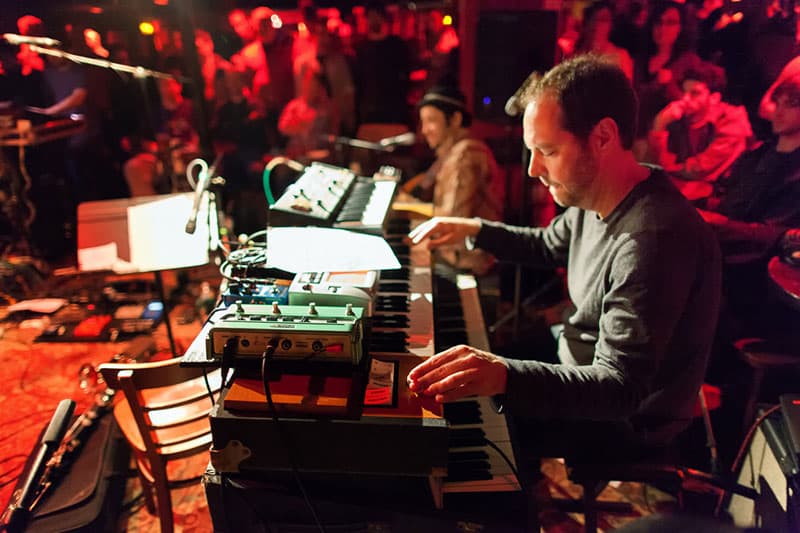
And there’s something about a group of people assembling in the same space over and over — Rivard estimates d'Elf has played there over 400 times — that makes for a sort of residual energy in the air, he says. Indeed, upon entrance it's easy to feel like you're bumping into some vintage bass frequencies that have been floating through the air for years.
Into all that is mixed a dose of psychedelic sensibility, originally inspired by Rivard’s experiences as a teenaged Deadhead.
“I was aware of the audience and the band forming a symbiotic relationship with the energy flowing back and forth. That was ultimately what I wanted music to do, to give people something deeper than just a night out, having a good time,” he says.
So perhaps Club d’Elf is actually a not-so-secret society. It’s not really for everyone, but anyone is welcome.
And on a good night, you just may find yourself in a place you've never been.

